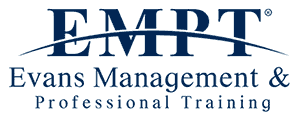Latest News from the EMPT London Blog

Supervised Child Contact
Supervised child contact usually takes place when a child has or is likely to suffer harm. Supervised contact should ensure the safety of a child or children having contact; it also assists in building and sustaining positive relationships between a
Introduction to Attachment Theory
Attachment theory was devised by psychiatrist and psychoanalyst John Bowlby. Within attachment theory, infant behaviour associated with attachment is primarily the seeking of (Close) proximity to an attachment figure in stressful situations; the caregiver. Attachment theory suggests that Infants become
Levels of qualifications attained makes a difference
The lower a young adult’s qualifications, the more likely they are to not be in employment but wanting paid work. For example, around a 25% of all people aged 25 to 29 with no GCSEs at grade C or above were not
Children in Care Need Male Care workers Too!
Male care workers can often be the first positive male role models that children have met, and play a vital role. But male care workers can face their own challenges in roles traditionally considered to be mainly carried out by
The Fostering Network the State of the Nation’s foster care survey (2016)
The Fostering Network the State of the Nation’s foster care survey (2016) – What foster carers think and feel about fostering is now available. The Fostering Network research involved in total 2,530 foster carers from across the UK completed the
Managing Quality Outcomes in Health and Social Care Settings
Managing quality outcomes is an essential element of management competence. Measuring and assessing service quality in the social care sector presents some distinct challenges. However, indicators of service quality, including those of service impact on outcomes for children. Monitoring can
Giving advice and information, to young people, about substance misuse risk taking
Make sure you understand enough about drugs and substance misuse, including why children might experiment with them, so you can talk to children and young people in an informed way. For foster carers understanding the facts about drugs may also help you to:
TSD 2.3 (a & b) Promoting Child Contact
Importance of child contact when promoting relationships with parents and others Child contact refers to all relationship links between a child and their families of origin and friends, regardless of the form and frequency of these links. This may include
Quality Assurance
We offer a range of courses delivered by trainers with experience and a sound working knowledge of their field
Consultancy
We listen and provide support tailored to your organisation’s needs
Training
We listen and provide support tailored to your organisation’s needs
Development
We offer management consultancy, training and development in health and social care
WHO WE ARE
EMPT are committed to empowering people and promoting equality and inclusion. EMPT provide high quality services, reflective in our training and management resources that presently meet our customers’ needs. We endeavour to ensyre that those who do our work are representative of the community we serve.
WHAT WE DO
We offer training, management consultancy/solutions services. EMPT provides a peer mentoring service. We specialise in social care. EMPT provides a service that tailors for corporate and individual needs. We have a wealth of experience and are imaginative and resourceful in our training course provision.
ADVERTISE WITH US
EMPT are committed to empowering people and promoting equality and inclusion. EMPT provide high quality services, reflective in our training and management resources that presently meet our customers’ needs. We endeavour to ensyre that those who do our work are representative of the community we serve.
SERVICES PROVIDED
Health and social care courses which covers issues about issues related to practice. This includes a variety of traditionally delivered training courses around the National Occupational Standards and qualifications for health and social functions as well as the Training Support and Developments Standards.
